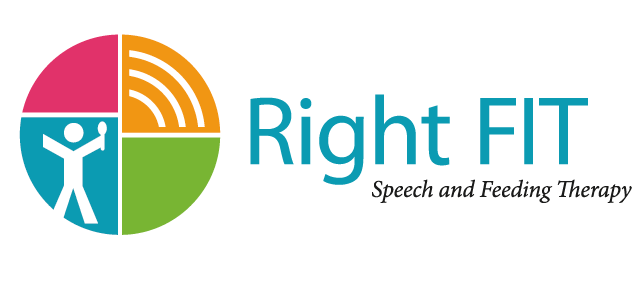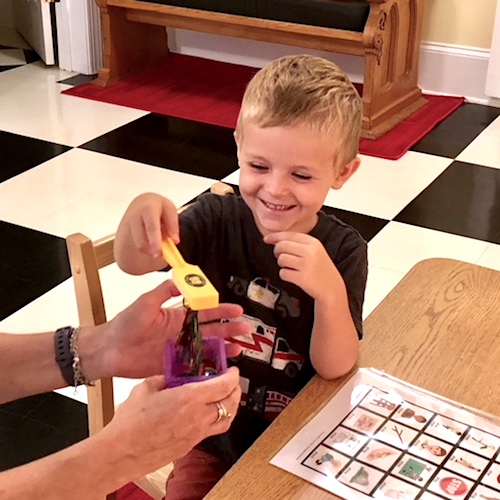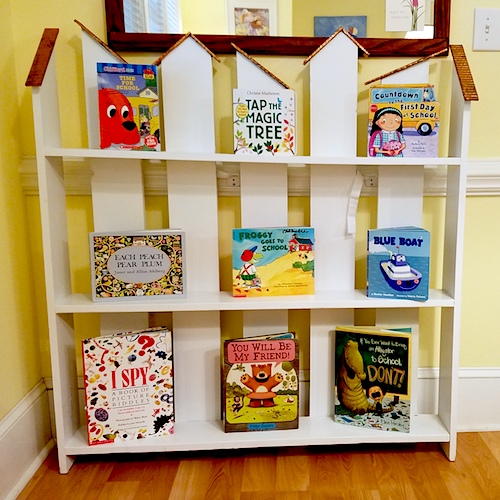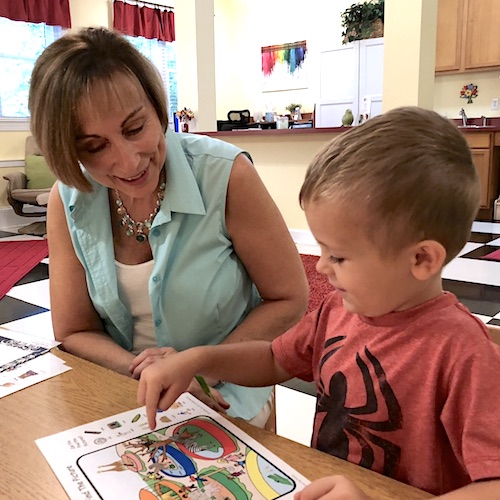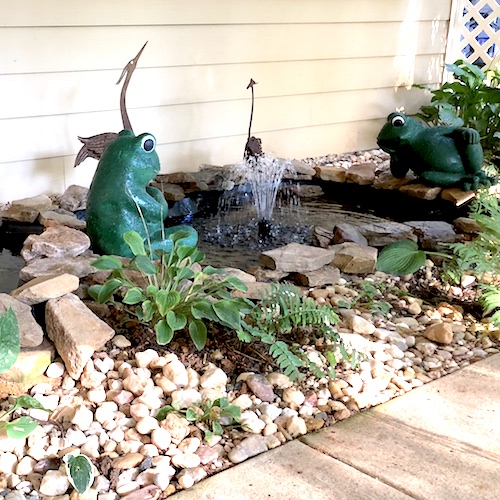Speech and Language Therapy
Are you concerned about your child’s speech or ability to express themselves?
Is your child’s speech difficult to understand? Do they sound younger than their peers? Do they have difficulty following directions, understanding questions or learning concepts, or expressing themselves in the way you expect?
I can help.
I have expertise in treating Childhood Apraxia of Speech (CAS), phonological disorders, dysarthria (speech muscle weakness), speech delays, including the difficult ‘r’ sound, and language delays.
My approach to speech and language therapy is to provide:
Thorough evaluation to help identify the underlying cause of your child’s speech or language difficulties, so that the most effective therapy techniques can be used.
FUN, creative, play-based therapy using a wide variety of toys, games, books, and activities, selected specifically to match your child's interests.
Engaging home activities to speed improvement and make practice between therapy sessions motivating and effective.
Up-to-date, evidenced-based techniques to facilitate the most rapid results possible.
Individualized care plans to meet your child's unique communication needs.
Does your child have complex needs related to medical, genetic, and/or developmental issues?
I specialize in helping children with a wide variety of diagnoses, including Autism, Cerebral Palsy, Angelman Syndrome, Pitt Hopkins Syndrome, and other rare genetic conditions learn to communicate.
What is childhood Apraxia of Speech?
From the American Speech-Language-Hearing Association (ASHA) website:
Childhood apraxia of speech (CAS) is a motor speech disorder. Children with CAS have problems saying sounds, syllables, and words. This is not because of muscle weakness or paralysis. The brain has problems planning to move the body parts (e.g., lips, jaw, tongue) needed for speech. The child knows what he or she wants to say, but his/her brain has difficulty coordinating the muscle movements necessary to say those words. Childhood Apraxia of Speech requires specialized therapy.
How I can help:
I can provide the one-on-one motor-based therapy, tailored specifically to your child's needs, that is essential for improving speech in children with CAS.
I teach parents and caregivers how to use specific cuing strategies to help their child produce sounds and words.
I make use of technology to video and/or take pictures of cues, and email them to the family to make it easier to practice successfully at home.
I have many years of experience working successfully with children with Childhood Apraxia of Speech (CAS).
How I stay up-to-date:
I continually strive to update my knowledge of best practices. Continuing education/training that I have taken includes (but is not limited to):
PROMPT Level 1 Training
'Promoting Expressive Language Development in Children with Childhood Apraxia of Speech'
'P.R.I.S.M.: A Model for Successful Treatment of CAS'
'Incorporating Pre-Literacy Skills in Speech Therapy to Improve Speech and Reading'
'Evidence-based Treatment Strategies for Childhood Apraxia of Speech'
'Suspected Apraxia and Early Intervention'
'Mixed Phonological Disorder/Childhood Apraxia of Speech Clinical Grand Rounds'
'Dealing with Dysarthria and Childhood Apraxia of Speech'
How ‘R’ Therapy may help your child
The ‘r’ sound is one of the most common speech errors, and one of the most challenging to treat. Many children spend years in therapy working to say it correctly in conversation.
Why is it hard for children?
Although we think of ‘r’ as a single sound, it actually has 21 forms, depending on the consonant or vowel preceding it, or following it, and its location in a word. A child may be able to say ‘rabbit’, but not ‘airplane’, ‘order’, or ‘girl’. Each requires a specific mouth position and movement (look in the mirror and say those words to see, feel, and hear the different ways the r’s are produced, with varying lip movements and sizes of mouth opening).
How to treat this.
The fastest and most effective ‘r’ therapy assesses a child’s production of each of these ‘r’ forms, determines what the mouth isn’t doing right for ones said incorrectly, and systematically works to correct those errors.
When to treat.
Most children will have mastered saying the ‘r’ sound correctly by age 6. Therapy is recommended to begin by age 7 1/2 if your child is still not producing it correctly by then, and they may make more rapid improvements if started sooner.
How I can help:
My strong background in motor speech therapy allows me to make the necessary analysis of your child’s ‘r’ productions, and use effective treatment strategies to speed the process of correcting the ‘r’ sound.
I provide one-on-one therapy, allowing for maximum opportunities to practice the sound in a session, while providing specific feedback, which speeds progress.
Kind Words
“As a parent of a child with the diagnoses of apraxia, dyspraxia, and autism, I well know the arduous journey of a parent on the path to rehabilitate their child. Our son is now 9 years old and doing well in life and school! Lynn was an integral part of our journey early on, and essential to our son’s success. We met Lynn when he was 2 years old and not talking... not one word. Perhaps I was also in denial about anything more than a simple speech delay. However, within the first few sessions of working with him, Lynn knew that this was more than a simple speech delay. With her gentle positivity, she urged me to explore a comprehensive work up (at which time, the OT evaluation confirmed dyspraxia), and she then partnered with us to treat his apraxia. I honestly don’t know where we would be without her. Because of Lynn, we accessed early intervention services when our son was 2, and I truly believe this has made all the difference.
It brings tears to my eyes to think of what Lynn has done for our family. She gave our son the precious gift of speech, which is synonymous with communication and meaningful relationships. During the six years of working with her, she also was a great support to me, when I felt overwhelmed and needed guidance.
Not only is Lynn a fantastic speech therapist (and truly an expert in apraxia!), but she is also a wonderful person and friend. I cannot recommend her enough!”
“My daughter, Audrey, suffered a brain injury at birth resulting in cerebral palsy. Her speech was significantly delayed due to lack of motor control and coordination. We started working with Lynn Carswell a year ago and have seen remarkable results with Audrey’s speech and oral motor control.
Lynn’s therapy sessions are strategically planned with fun games, stories and engaging activities. My daughter looks forward to her “play” time with Lynn. Lynn has also taught me how to encourage and reinforce my daughter’s speech. Her knowledge, experience and patience have been a true gift to our family.”
LINKS
PODD | Augmentative Communication | Feeding Therapy | About Lynn
